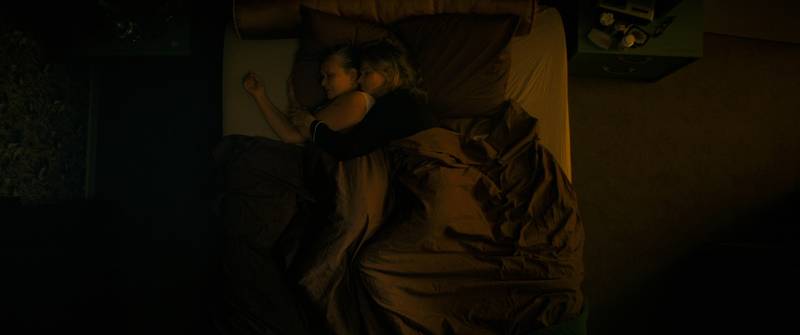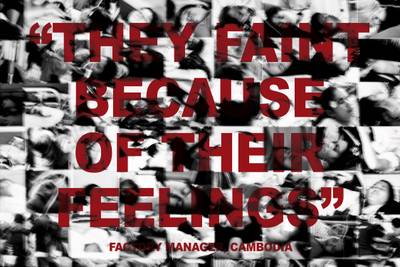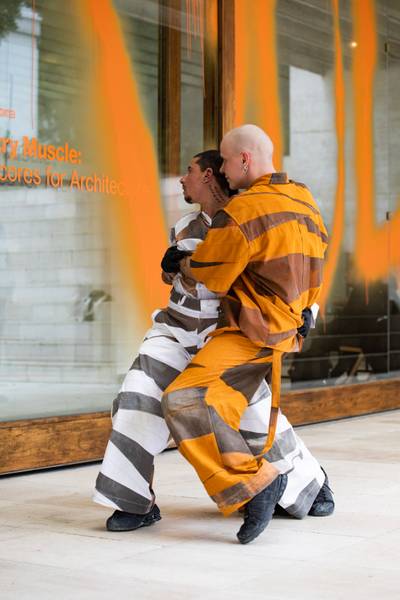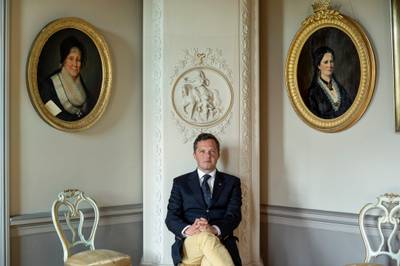

Isa Komsi is a writer based in Helsinki. She desperately needs more positive queer stories in her life—especially funny and weird romantic comedies that make you cry from laughter.
Two of Us | Directed by Filippo Meneghetti | Duration 1 h 31 min | Language: French
Our Western popular culture is youth-obsessed and having elderly people as main characters is a rare sight. And when it comes to queer representation in cinema, there aren’t enough lesbian movies. A movie about lesbian elderly women? Well, definitely there isn’t enough of those either, and that makes Two of Us, a French film written and directed by Italian director-writer Filippo Meneghetti, a welcomed yet flawed addition to queer representation.
When I noticed the movie as a part of the Helsinki International Film Festival, I got curious for several reasons: First, it’s a story about lesbian women in their seventies, which is a refreshing set up for a love story. Second, it’s directed by a man, which I must admit only made me sceptical and therefore interested; I wanted to see how the women are portrayed, how their story is written, how the camera looks at them—what kind of gaze and position we are given as viewers. Will it be just another sad queer story made out of queer stereotypes? The answer is yes, but also no.
Two of Us presents us with the story of Madeleine (Martine Chevallier) and Nina (Barbara Sukowa), two pensioners who have secretly loved each other for over 20 years. They live right opposite one another in the same building and share their life together as lovers inside the safety of Madeleine’s apartment. Madeleine, also known as Mado, is a widow with two grown-up children. In fear of judgement and disapproval, she hasn’t revealed her love for Nina to them, so they still believe that their father was the greatest love of her life. Nina, on the other hand, has never been married and doesn’t feel the need to hide her sexuality. She is a free spirit and tries to encourage Mado to tell the truth, as their grand plan is to sell Mado’s apartment, buy a new home in Rome, and finally be whoever they want to be. Reserved and quiet, Mado is supposed to tell the big news over a family dinner, but in the end, she can’t get the right words out of her mouth. Nina is furious after she finds out that Mado is still deep in the closet and that their dream is again harder to reach. After Mado has a stroke and loses her ability to move and speak, Nina too is forced back in the closet as Mado’s children see Nina only as their mother’s neighbor, Madame Dorn.
So far, it’s a classic queer set up; one of the main characters is out and open and the other is struggling with coming out. The movie could be seen as a simple coming out story, and haven’t we seen plenty of those already? However, I think the age of the main characters justifies the usage of this often seen trope, at least just enough that I don’t find it too overbearing. Mado and Nina are both 70-something, which means they have lived during much more conservative times than we are currently living in. Unfortunately, coming out still continues to be difficult for many queer people; when Meneghetti was co-writing the script with writer Malysone Bovorasmy in 2016, there were protests against same-sex marriages in France. The story, however, never states that Mado’s son and daughter are homophobic, which makes me believe that for Mado, the biggest problem is the fear of letting go. At its core, coming out is an abandonment of an old, unfitting role one has been presenting to the world. We all play different roles in our lives and perform them in various ways, and Mado’s roles have mainly been those of a mother and a wife. The latter role doesn’t serve Mado anymore, but it’s hard to break it and reveal the hidden role she has kept from her children for so many years.
The entertainment and film industry are dominated by youth to the extent that looking young is worshipped and maintained by any means possible. There is only a little room for female characters over 50 years old, and those roles are mostly supporting characters, such as mothers and grandmothers. Unfortunately, queer cinema is no different. Yes, we have movies such as Carol (2015) directed by Todd Haynes and The Favourite (2018) by Yorgos Lanthimos where middle-aged women have leading roles, but the majority of the most recent queer movies are about young, able-bodied, and usually quite conventionally attractive people, like Portrait of Lady on Fire (2019) directed by Céline Sciamma and My First Summer (2020) by Katie Found. Luckily, Mado and Nina are both complex characters, and their age is not the only thing that defines them; they are sexual beings, passionate for life and for one another. Their love of the song, Chariot, performed by Betty Curtis (an Italian cover of I Will Follow Him by Peggy March), has lived with them throughout their love and continues as their soundtrack as they dream of a shared future.
Sukowa’s performance as fierce and intense Nina is superb. Her eyes are flaming as she tries to get her love back, although sometimes it’s not easy to be on Nina’s side. At times, her actions are irrational and even dangerous to her and the people around her. In particular, Nina’s unnecessarily mean behaviour towards the caretaker Muriel is hard to watch. Nina has the right to be with Mado, but many of her actions are hard to justify, although some of them are also difficult to judge as I have never been in such a long-lasting romantic relationship. I can’t imagine how it feels to secretly love someone for decades, and when you finally have the chance to quit hide and seek and be together, the opportunity suddenly slips through your fingers and you desperately try to hold on to it in any way you can.
Chevallier as Madeleine is quite the opposite to Nina: for more than half of the movie, Mado is incapable of speaking or moving and is left with very few changes of expression on her face, so most of the acting is done with only tiny nuances in her gaze. Chevallier’s and Sukowa’s performances support each other beautifully, and the chemistry between them is undeniable. Unfortunately, the other characters fall a bit thin. Mado’s daughter Anne is portrayed by Léa Drucker, and her performance is so good it’s a pity her character is rather one-dimensional, though at least Anne has more room for slight character development than what was written for her brother Frédéric, portrayed by Jérôme Varanfrain, whose only function seems to be mean and bitter towards their mother.
It truly is lovely to see a love story about an elderly lesbian couple, but otherwise, Two of Us doesn’t differ from the majority of mainstream cinema; it is very middle class and very white. Nina and Mado have big apartments in a calm, beautiful area, and Nina can even afford to keep her apartment basically empty while she mostly lives at Mado’s place. After the stroke, Mado gets to have full-time, 24 hour medical care at home and is only moved to an expensive-looking elderly home after her children want to isolate her from Nina, whose behaviour they find odd and frightening.
Definitely the most horrific queer story stereotype is the devastating ending where lovers are torn apart. The most common reason is usually society’s rejection of queer love, but in some extreme cases, the other main character dies. I had to use Google to even remember a queer movie that doesn’t have a sad ending—and then I found out there were countless lists just of queer movies with happy endings, and depressingly enough, those lists weren’t that long. Although I’m well aware that tragedy sells in mainstream cinema as well, the proportion of sad and happy endings in queer cinema is seriously imbalanced. For many, it still isn’t easy to live as an LGBT person, but being queer is not a tragedy in and of itself. It’s the inequality, ignorance, hate, and lack of support that can make a queer life sad.
Stories can shape our sense of what is possible, and that’s why we need all types of narratives with different kinds of endings. I wish there would have been more positive queer representation when I was growing up. All the unhappy stories made me fear that the upcoming future as a queer adult would be even worse than being a queer teen. It’s frustrating to see that things aren’t much better today. After Mado’s stroke, I feared the worst until the very end. It is debatable whether the ending of Two of Us is fully tragic, but at least it’s not completely hopeless. In a way, Mado and Nina finally have each other, and they don’t need to hide anymore. I want to believe that they still have a life together ahead, but everything is left open when the movie ends and Betty Curtis sings:
You will live with me
in a fantasy island
and you’ll see a world above,
a world hidden in the blue,
all new to you.1
The overall reception from critics and audiences has been mainly positive, and Two of Us was the French entry for Best International Feature Film at the 93rd Academy Awards. I really hope that more diverse stories about queer people will get the attention and acclaim they deserve, not just stories of middle-class white cis-people that continue to dominate the narratives that are offered to us. Still, even with its apparent flaws, Two of Us moved me deeply, and I left the theater in tears. I wish we got to see more heartwarming love and passion between elderly queer people. I really need that kind of future representation, but next time they better get their way to Rome.







